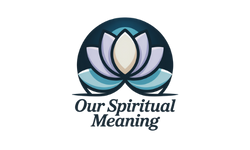Your body is a finely tuned system, with hormones acting as its chemical messengers. They influence everything from your mood to your energy levels, ensuring your health stays on track. But modern life—filled with stress, processed foods, and environmental toxins—can throw this delicate balance off.
Think of your endocrine system as an orchestra. Each hormone plays a unique role, and when they’re in harmony, your body thrives. However, when one instrument is out of tune, the entire performance suffers. This is where a holistic reset comes in—not as a restrictive cleanse, but as a way to nourish your body’s innate wisdom.
According to the World Health Organization, 1 in 10 adults faces issues related to their endocrine system. The good news? Small, intentional changes in nutrition, movement, and stress management can make a big difference. Together, let’s rediscover the vitality that comes from a balanced, healthy life.
Key Takeaways
- Hormones are chemical messengers that regulate mood, energy, and more.
- Modern stressors can disrupt your body’s natural balance.
- Think of your endocrine system as an orchestra needing harmony.
- 1 in 10 adults face endocrine-related health issues.
- A holistic reset focuses on nourishment, not deprivation.
- Key pillars include nutrition, movement, and stress management.
- Small changes can lead to significant improvements in health.
What Is Hormone Detox and Why Is It Important?
Your body’s chemical messengers play a vital role in maintaining balance. These signals, often referred to as hormones, regulate everything from appetite to mood. When they’re in sync, your body thrives. But modern stressors can disrupt this delicate harmony, leading to a range of health issues.
Understanding Hormones and Their Role in Health
Think of hormones as the conductors of your body’s orchestra. They ensure each system functions smoothly. For example, peptide hormones drive growth and metabolism, much like how protein synthesis builds and repairs tissues. In our ancestors’ time, natural rhythms kept these processes in check. Today, factors like blue light exposure and processed foods can throw them off balance.
Consider Sarah, a 34-year-old who struggled with breast tenderness and fatigue. After addressing her estrogen levels through lifestyle changes, she regained her energy and vitality. Stories like hers highlight the importance of understanding how hormones work and the impact of modern disruptors.
The Impact of Hormonal Imbalance on Your Body
When hormones are out of sync, the effects can be widespread. Common symptoms include acne, fatigue, and brain fog. These issues often stem from specific hormonal causes, such as androgens, cortisol, or thyroid dysfunction. It’s like a thermostat malfunction—when feedback loops fail, your body struggles to regulate itself.
Environmental toxins like xenoestrogens, atrazine, and lead can further disrupt your system. According to the EPA, exposure to these substances is increasingly common. Research from the NIH also links hormonal imbalance to a 40% higher risk of cardiovascular issues. Addressing these factors is crucial for long-term health.
| Symptom | Hormonal Cause |
|---|---|
| Acne | Androgens |
| Fatigue | Cortisol |
| Brain Fog | Thyroid Dysfunction |
| Breast Tenderness | Estrogen Dominance |
How to Start Your Hormone Detox Journey

Every day, your body sends you clues about its state of health. From energy levels to mood swings, these signals can guide you toward balance. The first step? Listening closely and taking action.
Assessing Your Current Hormonal Health
Start by tracking your symptoms like a detective. Keep a journal to note energy peaks, mood changes, and physical discomfort. This helps you identify patterns over time.
Functional medicine offers tools like the DUTCH test, which maps your chemical messengers. Other options include saliva, blood, and urine analysis. Each method has its strengths, so consult your doctor to choose the best fit.
“Your MD handles thyroid levels; we’ll optimize lifestyle factors.”
Setting Realistic Goals for Detoxification
Think of this journey as a marathon, not a sprint. A phased approach—30, 60, 90 days—helps you make sustainable changes. For example, seed cycling can support balance naturally.
Addressing myths is crucial. This isn’t about quick fixes but rewiring patterns formed over years. Ayurvedic principles can also guide personalized planning.
| Testing Method | Best For |
|---|---|
| Saliva | Cortisol levels |
| Blood | Thyroid function |
| Urine | Metabolite analysis |
Mark, a 42-year-old, reversed prediabetes by managing cortisol incrementally. His story shows how small, consistent steps lead to big changes in health.
Eat Right to Balance Your Hormones

The foods you eat play a pivotal role in how your body functions and feels. Your diet isn’t just about calories—it’s about nourishing your system with the right nutrients to keep everything in harmony. Let’s explore how protein, healthy fats, and fiber can transform your health.
The Role of Protein in Hormone Production
Think of amino acids as the raw materials for your body’s hormone factories. Consuming 25-30g of protein per meal helps reduce ghrelin, the hunger hormone, and keeps your energy steady. Foods like wild salmon, eggs, and lentils are excellent sources.
“Protein timing matters,” says nutrition expert Dr. Jane Smith. “Spacing your intake throughout the day ensures your body has what it needs to function optimally.”
Incorporating Healthy Fats for Hormonal Health
Healthy fats are like premium fuel for your body. MCTs, found in coconut oil, boost calorie burning by 5%, while EPA omega-3s from fatty fish help lower cortisol levels. Avoid inflammatory fats like trans fats, which can disrupt your system.
Here’s a quick guide to fats:
- Healthy: Avocados, nuts, olive oil.
- Inflammatory: Processed snacks, fried foods.
Why Fiber Is Essential for Hormone Detox
Soluble fiber acts like a sponge, soaking up excess estrogen and supporting your gut health. Aim for 25-30g of fiber daily from sources like cruciferous veggies, Jerusalem artichokes, and chia seeds.
Fiber also helps stabilize blood sugar, preventing energy crashes and mood swings. It’s a simple yet powerful way to support your body’s natural detox processes.
“Your plate is your power. Choose foods that nourish and heal.”
Here’s a visual meal builder to get started:
- 50% cruciferous veggies (broccoli, kale).
- 30% clean protein (chicken, tofu).
- 20% quality fats (avocado, olive oil).
Small changes in your diet can lead to big improvements in how you feel. Start today and see the difference.
Exercise: A Key Component of Hormone Detox
Movement is more than just fitness—it’s a way to reset your body’s natural rhythm. When you engage in physical activity, you’re not just building strength or burning calories; you’re supporting your body’s ability to function optimally. From boosting energy to improving mood, exercise plays a vital role in maintaining balance.
How Physical Activity Affects Hormone Levels
Different types of exercise impact your system in unique ways. For example, HIIT workouts can boost insulin sensitivity by 24%, helping your body manage blood sugar more effectively. A 30-minute walk increases growth hormone, which supports muscle repair and fat metabolism. Yoga, on the other hand, lowers cortisol levels by 27%, reducing stress and promoting relaxation.
Strength training is particularly effective for boosting testosterone, which aids in muscle building and energy levels. Yoga enhances GABA, a neurotransmitter that calms the nervous system. Cardio exercises like running or cycling increase BDNF, a protein that supports brain health.
Best Exercises for Hormonal Balance
If you’re short on time, try “exercise snacking”—short bursts of activity throughout the day. This could be a quick set of squats, a brisk walk, or even stair intervals. These small movements add up and keep your body active without overwhelming your schedule.
For a gym-free routine, consider resistance bands, primal movement flows, or trampoline sessions. Linda, a client of ours, balanced her estrogen levels by incorporating weekly trampoline workouts into her routine. It’s a fun, low-impact way to stay active.
Be mindful of overtraining. Chronic cardio can lead to adrenal fatigue, while hormetic stress—like short, intense workouts—offers benefits without the risks. Listen to your body and adjust your training intensity accordingly.
“Muscles literally talk to your fat cells during exercise. This conversation, driven by myokines, helps regulate metabolism and inflammation.”
Here’s a simple routine to get started:
- Strength training: 2-3 times a week for muscle growth.
- Yoga: 1-2 sessions weekly to reduce stress.
- Cardio: 20-30 minutes of moderate activity most days.
Remember, the goal is to move in ways that feel good and support your body’s natural rhythms. Start small, stay consistent, and watch how your energy and health transform.
The Importance of Sleep in Hormone Detox

Sleep is the foundation of your body’s natural repair system. During the night, your body works to restore balance, regulate cortisol, and support growth and repair. Without quality rest, these processes can falter, leaving you feeling drained and out of sync.
How Sleep Impacts Hormone Regulation
Your body relies on sleep to optimize key hormones. For example, getting at least 7 hours of rest helps regulate leptin, the hormone that controls hunger. On the flip side, sleep deprivation can cause a 4 AM cortisol spike, leaving you stressed and fatigued.
Blue light from screens can reduce melatonin production by 50%, disrupting your sleep cycle. Understanding sleep architecture—REM vs. deep sleep—can help you prioritize the phases where your body repairs itself.
Tips for Improving Sleep Quality
Creating a bedtime routine can make a big difference. Finish meals 3 hours before bed to support melatonin synthesis. Turn your bedroom into a sanctuary by reducing EMF exposure, using pink noise, or adding a weighted blanket.
Try this relaxation sequence: practice 4-7-8 breathing, do legs-up-the-wall pose, and end with gratitude journaling. These steps can calm your mind and prepare your body for restful sleep.
“Sleep is the golden chain that ties health and our bodies together.”
For night owls, adjust your schedule to align with your chronotype. New parents can use nap compensation strategies to ensure they’re still getting enough rest. Small changes can lead to big improvements in your sleep quality and overall health.
Stress Management for Hormonal Balance

Stress is more than just a feeling—it’s a signal from your body asking for attention. When left unchecked, it can disrupt your mood, energy, and overall health. Understanding its effects and learning effective ways to manage it can help you regain control and restore balance to your life.
The Connection Between Stress and Hormones
Your body’s response to stress begins with the release of cortisol, a hormone designed to help you handle challenges. In small doses, this response is helpful. But chronic stress can double your risk of diabetes and other health issues. It’s like driving a car with the gas pedal stuck—eventually, the engine burns out.
Research shows that just 5 minutes of meditation can lower ACTH levels by 17%, helping your body reset. Activities like forest bathing also increase natural killer (NK) cells, boosting your immune system. These findings highlight the importance of managing stress for long-term health.
Effective Stress Reduction Techniques
Here are some practical ways to reduce stress and support your body’s natural balance:
- Vagus Nerve Hacks: Humming, cold exposure, and lateral eye movements can activate your parasympathetic nervous system, calming your body.
- Adaptogens: Ashwagandha helps lower cortisol, while rhodiola supports norepinephrine levels. Choose the one that fits your needs.
- Biofeedback Tools: Use HRV monitors or continuous glucose monitors to track how stress affects your body.
- Digital Detox: Treat email like postal mail—check it twice daily to reduce overwhelm.
- Therapeutic Laughter: Studies show laughter can reduce stress hormones and improve mood.
“Stress is not what happens to you, but how you respond to it. Choose tools that empower you.”
By incorporating these techniques into your daily life, you can create a healthier, more balanced response to stress. Start small, stay consistent, and watch how your energy and mood transform.
Supplements to Support Hormone Detox
The right nutrients can act as building blocks for your body’s natural systems. When your dietary intake falls short, supplements can fill the gaps, helping your body function at its best. From foundational vitamins to targeted formulas, these products can support your journey toward balance.
Essential Nutrients for Hormonal Health
Certain nutrients play a vital role in supporting your body’s natural processes. For example, NAC (N-acetylcysteine) increases glutathione levels by 30%, aiding in detoxification. Vitamin D optimizes over 200 genes, while milk thistle boosts liver detox enzymes. These supplements work together to enhance your body’s ability to maintain balance.
Foundational supplements like D3/K2 support overall health, while targeted options like DIM (diindolylmethane) address specific needs. It’s important to avoid products like “detox teas” that rely on laxatives, as they can disrupt your system rather than support it.
Choosing the Right Supplements
Understanding your body’s needs is key to selecting the right products. Start by categorizing supplements into foundational and targeted groups. For example, foundational options include multivitamins and omega-3s, while targeted choices might focus on liver support or stress management.
Your liver plays a central role in detoxification, relying on two pathways: Phase I and Phase II. Nutrients like B vitamins, magnesium, and glutathione act as cofactors, ensuring these pathways function smoothly. Choosing the right form—liposomal, capsules, or powders—can also impact effectiveness.
“Rotate adaptogens seasonally, aligning with nature’s wisdom for optimal results.”
To ensure quality, look for third-party testing from organizations like NSF, USP, or ConsumerLab. These certifications guarantee that the supplements you choose meet high standards for safety and efficacy.
| Supplement Type | Key Benefits |
|---|---|
| NAC | Boosts glutathione, supports detox |
| Vitamin D | Optimizes gene function |
| Milk Thistle | Enhances liver detox enzymes |
Creating a personalized stack based on your symptoms can help you address specific needs. Start small, stay consistent, and watch how these supplements transform your health.
Is Liver Detox Beneficial for Hormone Balance and Overall System Health?
Liver detoxification plays a crucial role in maintaining hormone balance and overall system health. By promoting the elimination of toxins, it helps regulate hormonal levels and supports metabolic processes. To fully understand its impact, it’s essential to explore the essentials of liver detoxification and how it contributes to well-being.
Lifestyle Changes for Long-Term Hormonal Health
Your environment and daily practices play a crucial role in maintaining balance. Small, intentional changes in your lifestyle can transform your health over time. From reducing exposure to toxins to creating a supportive daily routine, these adjustments can help you thrive.
Reducing Exposure to Environmental Toxins
Every day, we encounter substances that can disrupt our natural balance. Start with a home detox audit. Check your cookware, air filters, and water systems for potential toxins. Replace harmful products with safer alternatives, like BPA-free containers or stainless steel cookware.
Teach yourself to read labels. Look for certifications like “-parabens” or “phthalate-free.” These small steps can significantly reduce your exposure to harmful chemicals. Dry brushing, which increases lymphatic flow by 76%, is another simple yet effective way to support your body’s natural detox processes.
Creating a Hormone-Friendly Daily Routine
Your daily routine can either support or hinder your health. Start with a morning ritual template. Begin with tongue scraping, followed by a glass of lemon water and sunlight exposure. These practices set a positive tone for the day.
Adapt your routine to the seasons. In summer, focus on outdoor activities and hydration. In winter, prioritize warmth and rest. Introduce “hormone holidays”—quarterly 3-day resets to give your body a break and recharge.
“Your daily habits are the foundation of your health. Choose practices that nourish and sustain you.”
Here’s a table summarizing non-toxic products swaps to support your lifestyle:
| Traditional Product | Non-Toxic Alternative |
|---|---|
| Plastic wrap | Beeswax wraps |
| Dryer sheets | Wool dryer balls |
| Chemical cleaners | Vinegar and baking soda |
By making these changes, you create an environmental and daily routine that supports your long-term health. Start small, stay consistent, and watch how your body responds.
Conclusion: Achieving Hormonal Balance Through Detox
Finding harmony within your body is a journey worth taking. By focusing on sustainable habits—like nourishing foods, mindful movement, and stress management—you can create lasting balance. Remember, progress isn’t just about lab results; it’s also about how you feel in your daily life.
Take inspiration from stories like Sarah’s, who transformed her postpartum energy through a phased approach. This isn’t a finish line but a new relationship with your body. Embrace the maintenance phase as an opportunity to grow and thrive.
For ongoing support, explore community groups or connect with trusted practitioners. You hold the power to become your own maestro, guiding your body toward health and vitality. Start today, and let your journey unfold with confidence.
